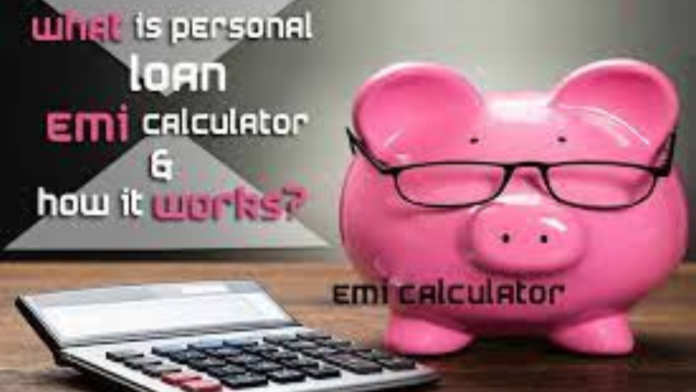Before you apply for a personal loan, it’s important to know if you’re eligible for one. The process of applying for a loan can be time-consuming and frustrating, so it’s best to know upfront whether or not you even qualify. There are a few different factors that lenders will take into consideration when determining your eligibility for a personal loan. In this blog post, we’ll explore these factors and give you some tips on how to improve your chances of being approved.
If you’re looking for an EMI calculator for personal loan, you’ve come to the right place. In this blog post, we’ll show you how to use our EMI calculator to compute your monthly loan payments. We’ll also provide some tips on how to get the most out of our calculator. So whether you’re planning to apply for a personal loan or you’re already in the process of repaying one, read on to find out more!
what is it?
There are a few key factors that go into personal loan eligibility. Personal loan lenders will consider your credit score, annual income, employment history, and other debts when deciding on whether or not to approve your loan.
- If you have a strong credit score and a steady income, you’re more likely to be approved for a personal loan. Personal loan lenders also like to see a history of responsible borrowing, so if you’ve taken out loans in the past and made all of your payments on time, that will work in your favour.
- If you have other debts, such as credit card debt or student loans, that could impact your loan eligibility. Lenders want to see that you can manage your finances responsibly and may be less likely to approve a loan if they feel like you’re already stretched too thin.
Ultimately, the best way to find out if you’re eligible for a personal loan is to apply with a few different lenders and see what they say. Each lender has its criteria for personal loan approval, so it’s worth shopping around to see who will give you the best chance of getting approved.
How personal loan eligibility is calculated?
When you apply for a personal loan, lenders will assess your eligibility for the loan based on some factors. These include your credit history, income and employment status, debts and expenses, and other factors.
To assess your creditworthiness, lenders will look at your credit report and credit score. They’ll also consider your income and employment status to make sure you can afford the loan repayments. To calculate your debt-to-income ratio, they’ll take into account all of your debts (including the personal loan) and compare them to your pre-tax income.
Lenders will also consider other factors when assessing your loan eligibility. These can include things like whether you own your own home, how long you’ve been employed at your current job, and whether you have any assets that could be used as collateral for the loan.
Ways To Improve Your Loan Eligibility
There are a few things you can do to improve your loan eligibility. First, make sure you have a good credit score. The higher your credit score is it will be easier for you to be approved for a loan. Second, try to get a co-signer with good credit. This will increase your chances of being approved. Third, make sure you have a steady income and a low debt-to-income ratio. Lenders want to see that you can afford the loan payments. Fourth, save up for a down payment. A down payment shows lenders that you’re serious about repaying the loan and it may help you get a lower interest rate. Fifth, shop around for the best deal. Personal loans can be expensive, so it’s important to compare rates and terms before you apply.
What is an EMI Calculator?
An EMI calculator is a tool that can be used to calculate the monthly repayments on a loan. The calculator takes into account the loan amount, interest rate and term of the loan, and calculates the monthly repayment amount.
The EMI calculator can be used to compare different loans and find the loan that best suits your needs. It is important to remember that the monthly repayment amount is only an estimate, and actual payments may be higher or lower depending on the interest rate and terms of the loan.
Conclusion
When it comes to personal loans, there are a few things you’ll need to take into account to be eligible. First, most personal loans require that you have a good credit score— generally 680 or higher. If your score is below this, you may still be able to qualify for a personal loan with a cosigner or by providing collateral.
Second, you’ll need to have a steady source of income to repay the loan. This can come from employment, self-employment, disability benefits, child support, or alimony.
Third, some lenders may require that you have a bank account in good standing and provide proof of income before they’ll approve your loan.
If you meet all of these personal loan eligibility requirements, then you should have no problem qualifying for a personal loan. Just make sure to shop around for the best rates and terms so that you can get the most out of your loan.








